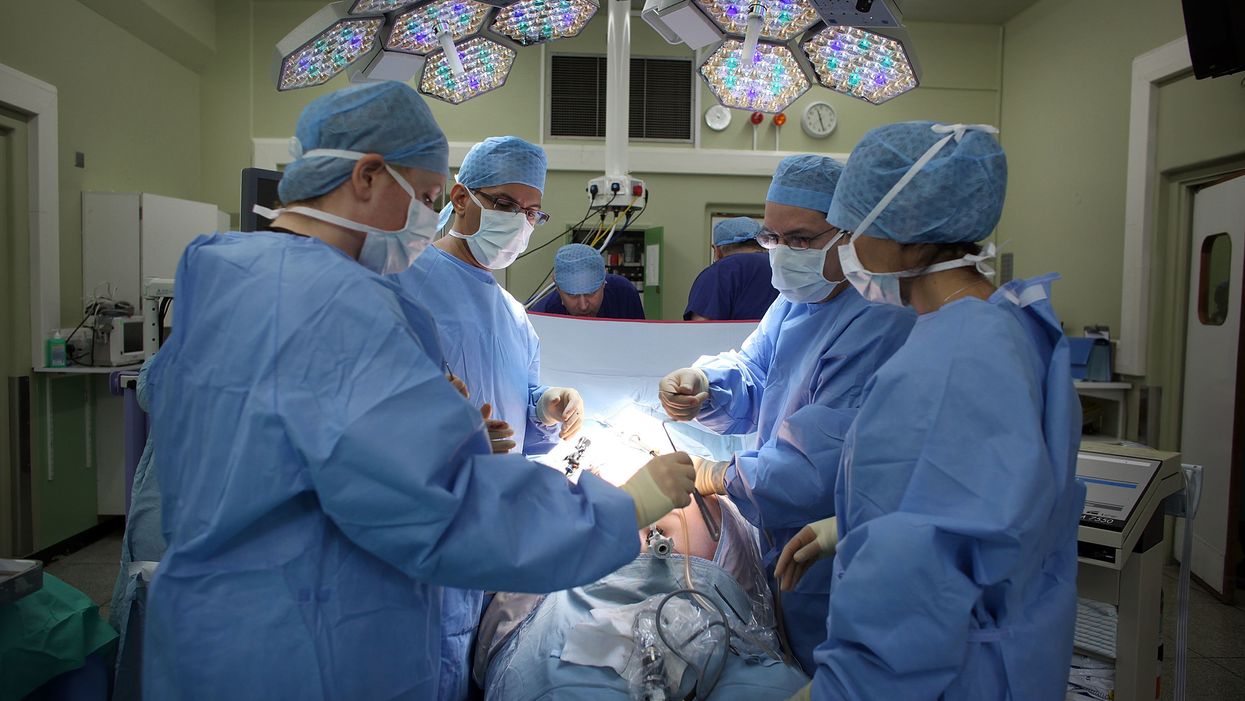
Photo by Christopher Furlong/Getty Images

'How do I go back to being the Debbie that I was?'
Biological women who have transitioned into men are coming out in droves to de-transition, regretting their initial decision and mental states that allowed them to transition in the first place.
Debbie, a biological female who transitioned to male two decades ago, says that she deeply regrets her transition, and is now seeking to undo the gender reassignment surgery that changed her life.
In an interview with the BBC, Debbie, 61, says that she underwent a full surgery — creating a penis out of forearm skin — and took 17 years' worth of testosterone treatments.
"This was a mistake that should never have happened," she says. "How do I go back to being the Debbie that I was?"
When Debbie was 44 years old, she believed that living as a male would help her to become "accepted in the world."
It turns out, she was wrong, because now — nearly two decades later — she is transitioning back into a woman.
Debbie says that she believes that sexual abuse, which occurred when she was a child, was at the root of her desire to change sexes.
"I thought I was going to be on a journey to becoming a different person... I'd morph into someone else and leave that traumatised woman completely behind," she says.
She realized, though, through counseling, that her decision to transition "was a way of trying to escape."
Thain, a 40-year-old female who transitioned to male, says that she grew up as what she believed was a "gender-nonconforming child."
"And then there was the fact that I was attracted to girls," she says, "and I just didn't know anybody who was lesbian."
Thain began her transition at the age of 26 with testosterone treatments. She also found that she regretted the procedure, and began taking strides to de-transition after just two years of hormone treatment.
"It wasn't until I discovered a community who were affirming to gender non-conforming people, which is the radical feminist community, that I really made the decision to stop," she tells the BBC.
Charlie Evans, 28, says that she also struggled with gender identity when she was a teen. At 15, she began identifying as a male, and began living as such.
Though she never underwent hormone treatment or surgery, Evans says that she eventually began identifying as a woman when she received the support from other people like her. Evans says that she set up a support group that is filled with people with same-sex sexual preferences and mental disorders.
"Most of us [in a support group] are same-sex attracted," she says. "Most of us identify as either lesbian or bisexual, and a lot of us are autistic."
Evans adds that a lot of the people in the group were so mentally or emotionally afflicted that they simply shouldn't have been able to consent to transitioning "because they felt so unwell with eating disorders or depression."
Dr. James Caspian, a psychotherapist who specializes in working with transgender adults, says that people who transition are contacting him left and right for counseling during their reverse transitions.
"This whole area of transgender medicine is very under-researched," Caspian says. "Quite a lot of them seem to have had a very negative experience of being female in a female body. Sexual harassment, even abuse."